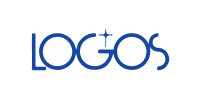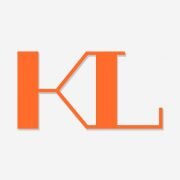Best Debt Capital Markets Lawyers in Seoul
Share your needs with us, get contacted by law firms.
Free. Takes 2 min.
List of the best lawyers in Seoul, South Korea
About Debt Capital Markets Law in Seoul, South Korea
Debt Capital Markets (DCM) refers to the financial market where companies and governments raise funding through the issuance of debt securities, such as bonds or notes, rather than through equity. In Seoul, South Korea, the DCM is a vital sector that supports corporate financing, government funding, and infrastructure development. Seoul is the main economic hub of Korea, and its legal system is well equipped to handle complex DCM transactions involving both domestic and international participants. The local legal framework provides for the issuance, trading, and regulation of various debt instruments, with oversight from several governmental bodies.
Why You May Need a Lawyer
There are several situations where a person or organization may require legal help concerning Debt Capital Markets in Seoul, South Korea. Common scenarios include:
- Structuring and documenting debt offerings for companies or governments. - Complying with issuance and disclosure requirements set by financial regulators. - Advising foreign entities on the Korean regulatory environment and cross-border DCM transactions. - Handling complex negotiations among issuers, underwriters, and investors. - Navigating disputes arising from defaults, restructuring, or breaches of covenants. - Assuring compliance with anti-money laundering and anti-corruption legislation. - Advising on taxation issues connected to cross-border debt issuances. - Responding to regulatory investigations and enforcement actions.
Legal professionals offer vital support to ensure that any transaction complies with local laws, minimizes risk, and protects the interests of all parties involved.
Local Laws Overview
Debt Capital Markets in Seoul are governed by a number of local laws and regulations, including the Financial Investment Services and Capital Markets Act (FSCMA), which is the primary piece of legislation for securities issuance and trading in Korea. Some key aspects include:
- Issuers must comply with registration and disclosure obligations for public offerings. - The Financial Services Commission (FSC) supervises and enforces compliance in the capital markets. - Bonds can be issued domestically or to foreign investors, with specific rules applying to each. - There are particular requirements for listing debt securities on the Korea Exchange (KRX). - Private placements have fewer disclosure requirements but are limited in scope. - Regulations on investor protection, insider trading, and market manipulation are strictly enforced. - Cross-border transactions, including foreign currency bonds, may require additional regulatory approval and compliance with international standards.
Understanding these legal requirements is essential to conducting successful debt market operations in Seoul.
Frequently Asked Questions
What qualifies as a debt security in South Korea?
Debt securities include a wide range of instruments such as corporate bonds, government bonds, notes, and commercial paper, all of which represent a borrower's promise to repay borrowed money with interest.
Who regulates the Debt Capital Markets in Seoul?
The Financial Services Commission (FSC) and the Financial Supervisory Service (FSS) are the main regulators, with the Korea Exchange (KRX) overseeing secondary trading and listings.
Can foreign entities issue bonds in South Korea?
Yes, foreign entities can issue bonds in South Korea, subject to meeting local regulatory requirements including disclosures, filings, and obtaining any necessary approvals.
What are the typical steps involved in a debt issuance?
The process usually includes structuring the deal, conducting due diligence, preparing offering documents, obtaining regulatory approvals, marketing to investors, and closing the transaction.
What disclosure obligations apply to issuers?
Issuers must provide detailed information about their financial condition, the terms of the securities, associated risks, and use of proceeds. These requirements are stricter for public offerings than for private placements.
Are there restrictions on who can invest in debt securities?
While many debt securities are open to a broad base of investors, some, like private placements, may be limited to institutional or accredited investors in accordance with local regulations.
What is the role of underwriters in Debt Capital Markets?
Underwriters help issuers structure offerings, conduct due diligence, market the securities, and facilitate the sale to investors. They often take on some risk by guaranteeing sales of a certain amount.
How are disputes related to debt securities typically resolved?
Disputes may be resolved through negotiation, mediation, arbitration, or litigation in the Korean courts, depending on the contracts involved and the nature of the dispute.
What legal risks are common in Debt Capital Markets?
Risks include regulatory breaches, disclosure failures, liability for misstatements, and the risk of default by issuers. Legal counsel helps manage and mitigate these risks.
Does Korean law recognize international standards in DCM?
Korean regulations are generally aligned with international best practices, especially for cross-border offerings, but local variations exist and need careful navigation.
Additional Resources
If you need more information or support about Debt Capital Markets in Seoul, you may find the following organizations useful:
- Financial Services Commission (FSC) - Regulator for financial markets and securities. - Financial Supervisory Service (FSS) - Supervisory authority for Korea’s financial sector. - Korea Exchange (KRX) - Main bourse for listing and trading debt instruments. - Korean Securities Association (KSA) - Industry association providing educational resources. - Local law firms specializing in financial and capital markets law. - Government and public libraries for legal research. - International law firms with regional offices in Seoul for cross-border expertise.
Next Steps
If you require legal assistance with Debt Capital Markets in Seoul, start by gathering all relevant documentation about your intended transaction or issue. Identify your goals and challenges, then consult with a law firm or legal professional experienced in DCM matters in South Korea. Many law firms offer initial consultations to help determine your needs and outline potential strategies. Be prepared to discuss your business objectives, regulatory requirements, and any specific concerns you may have. Leveraging the guidance of professionals ensures you remain compliant and can navigate the complexities of Debt Capital Markets with confidence.
Lawzana helps you find the best lawyers and law firms in Seoul through a curated and pre-screened list of qualified legal professionals. Our platform offers rankings and detailed profiles of attorneys and law firms, allowing you to compare based on practice areas, including Debt Capital Markets, experience, and client feedback.
Each profile includes a description of the firm's areas of practice, client reviews, team members and partners, year of establishment, spoken languages, office locations, contact information, social media presence, and any published articles or resources. Most firms on our platform speak English and are experienced in both local and international legal matters.
Get a quote from top-rated law firms in Seoul, South Korea — quickly, securely, and without unnecessary hassle.
Disclaimer:
The information provided on this page is for general informational purposes only and does not constitute legal advice. While we strive to ensure the accuracy and relevance of the content, legal information may change over time, and interpretations of the law can vary. You should always consult with a qualified legal professional for advice specific to your situation.
We disclaim all liability for actions taken or not taken based on the content of this page. If you believe any information is incorrect or outdated, please contact us, and we will review and update it where appropriate.















